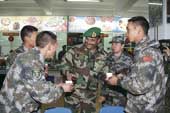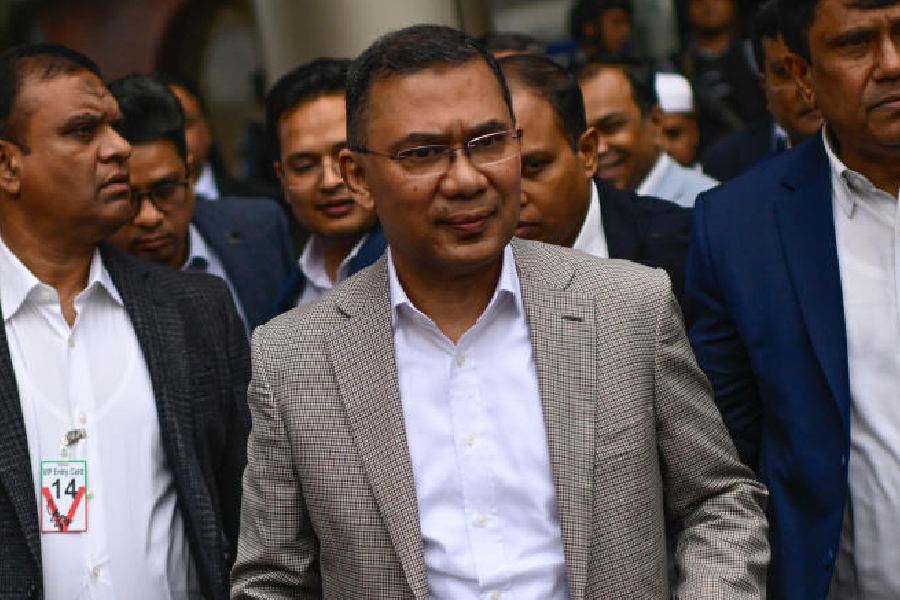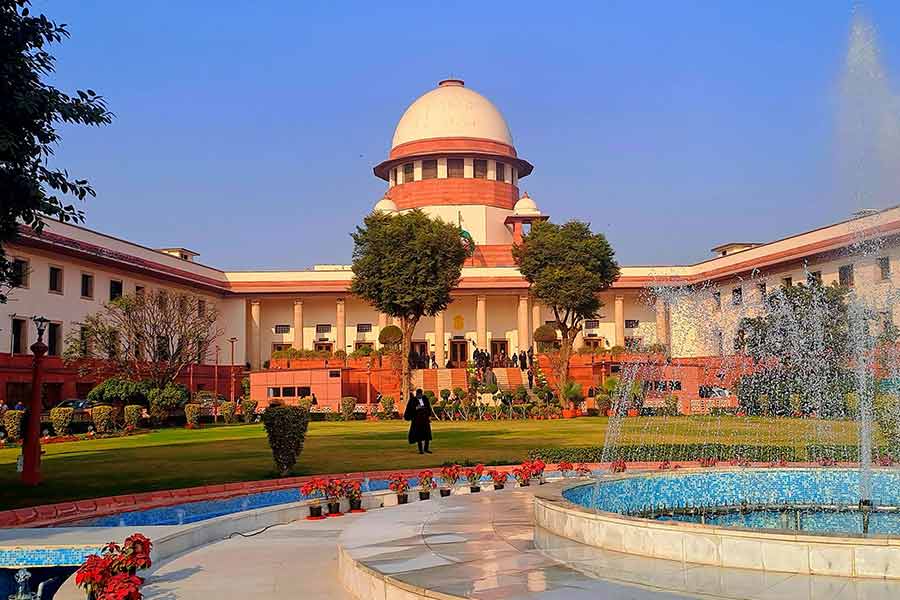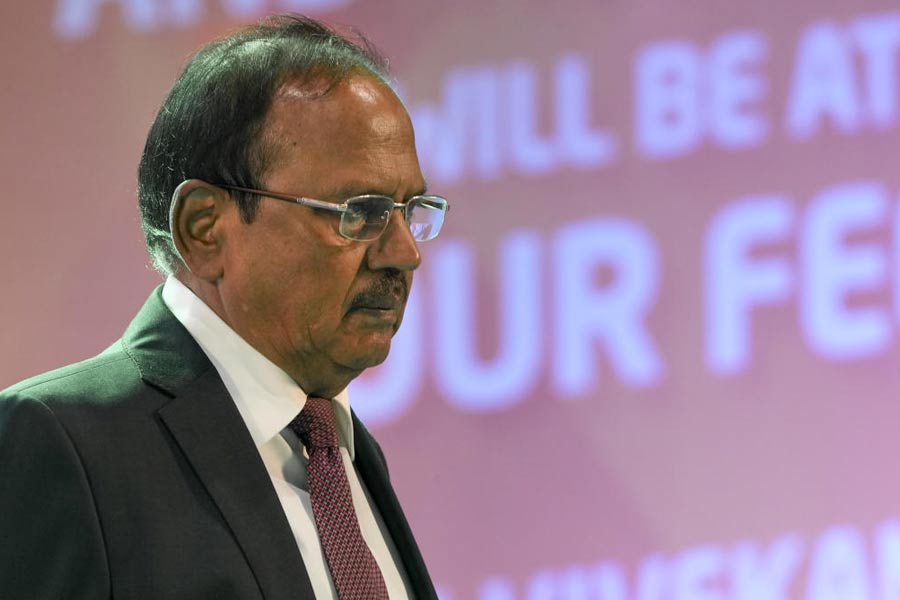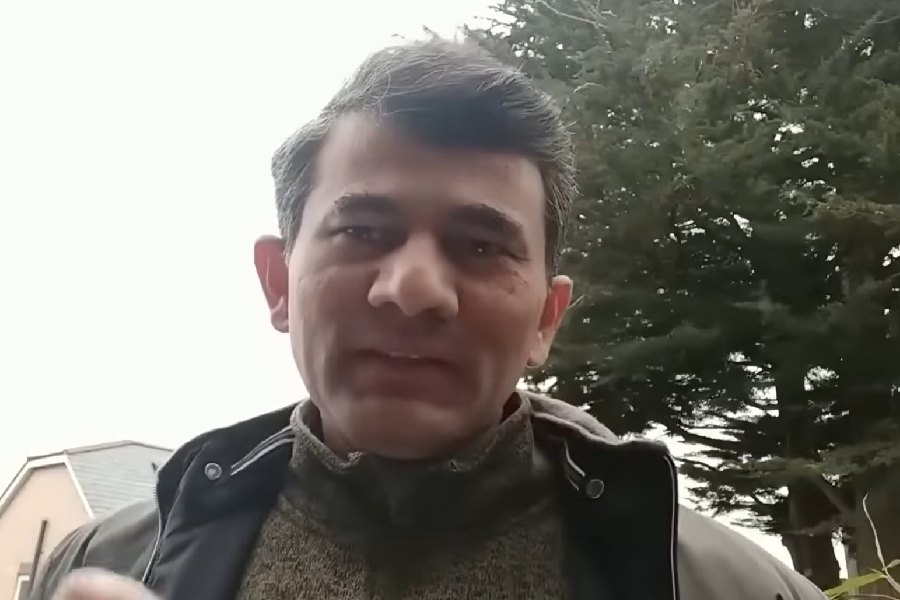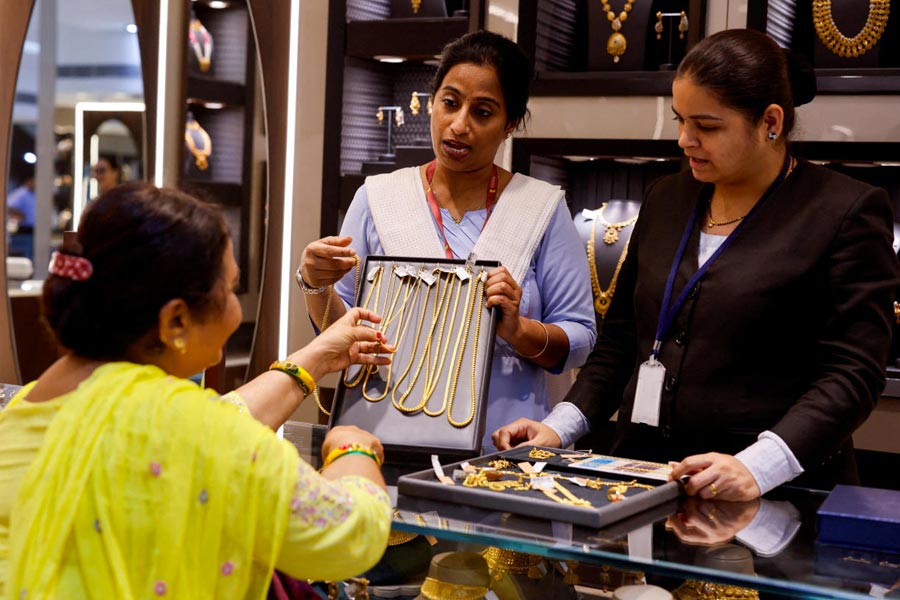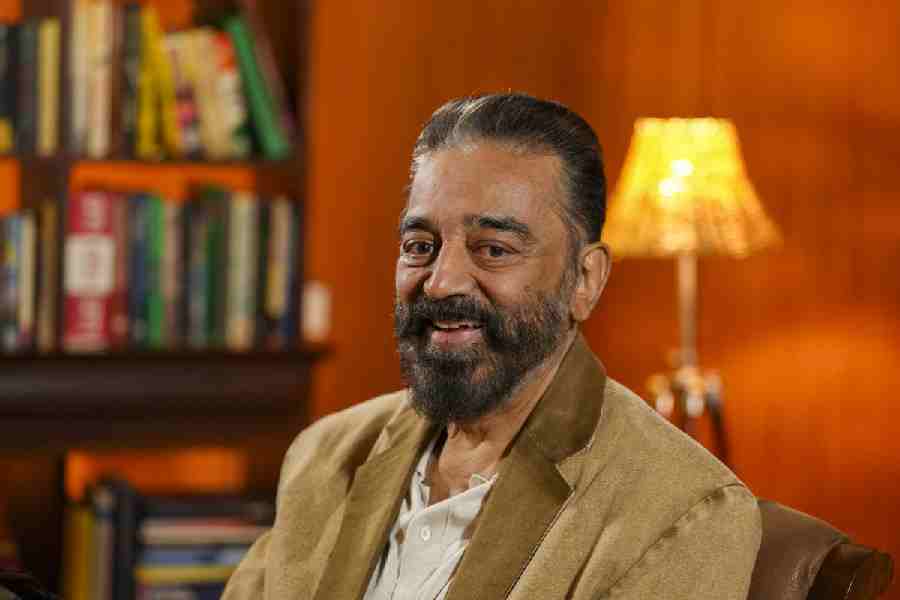 |
 |
| Brigadier Dadwal tries Yunnan Red Wine with Chinese soldiers at the banquet; (bottom) a PLA captain holds a bottle of Old Monk Rum. Telegraph pictures |
Kunming, Dec. 21: Bottles of smooth Yunnan Red Wine and sturdy Indian Old Monk Rum were emptied to wash down an 18-course meal as soldiers from India and China broke the ice with a merriment that overcame the cold formality of the first joint war game that began here today.
Hands that sloshed the rum and the wine at a party for the troops last evening held grenade launchers and the ingenious dagger-pistol this morning. The Chinese soldiers were displaying field tactics and their weapons in the morning. The Indians were to follow with a similar exhibition of skills this afternoon.
But the surprise of this unique meeting is the manner in which the troops of the two army companies that have assembled in the Kunming Military Academy have got along. The formality of toasts and speeches was easily dispensed with and the language problem swiftly surmounted by the soldiers.
What was billed as a prim-and-propah official “banquet”, as Senior Colonel Zhao Yung Qi, the chief of logistics for the exercise, described it, ended in a full-blooded celebration. Catcalls and whistles greeted every peg poured out, every click of a camera and every dish that was savoured in the cadets’ cafeteria of the academy.
The soldiers of the 15 Jammu and Kashmir Light Infantry and the 7022 Armoured Recce Company sat in rows facing each other. Before the arrival of the war game’s directing staff — Major General Xiong Zuo Ming, Brigadier D.S. Dadwal and Colonel Jagdeep Singh Budhwar — there was a quietness that sat like a heavy weight on tired shoulders.
Indian soldiers picked gingerly from the food, not sure which to have and which not to, what was vegetarian and what was not, what was halal and what was jhatka.
On two tables were pots of such delicacies as Ball of Chicken Feet, Chanchungbao (duck meat in a gravy), Golden Cabbage (a soup), Kowe Shingje (clams and melons in a fruit gravy), Mai (seafish gravy), a pumpkin and potato gravy, Umxiaochikhwe (chicken and carrot), Chingdoiyazo (boiled lamb), Khowaje (a flower-like bread) and dumplings the size of hand grenades filled with an assortment of pork, chicken and lamb meat.
But once the general and the brigadier locked arms and emptied their goblets of miaoling (a transparent drink with 52 per cent alcohol bottled specially for the People’s Liberation Army) in toast after toast, the Kashmiri, Sikh and Maharashtrian soldiers offered to pour out rum for their Chinese counterparts.
The Chinese offered the favourite Motai and the Yunnan Red Wine for which this province is famous. At one end of a long table, a half-litre bottle of Old Monk was finished by four soldiers in 15 minutes flat. Out came the cameras and Brigadier Dadwal left his high table and went shaking hands from table to table beginning with a pretty Chinese woman, and General Xiong joined the Indians.
Women are regulars in the PLA. One of them, the English-speaking Lt Colonel Zhao Meng, was publicly congratulated by her boss, Senior Colonel Wu Xiao Yi, the deputy director general in the Asian Affairs Bureau of the Chinese defence ministry, for having worked hard to make the India-China joint drill a success.
“This joint training has not come out of thin air. There is a context to it. There have been many exchanges in the past,” Wu went on to emphasise.
“This year particularly, there are three important things in our relationship — the visit by the chairman, chiefs of staff committee (General J.J. Singh in May), the first round of defence and security consultation, and now this meet.”
Senior Colonel Wu worked with the Indian defence attache, Colonel Yogesh Kumar Joshi, to bring this meet about. “It’s taken a lot of sleepless nights. There were worries but the exercise is, indeed, happening,” said Joshi.
Wu ended his spiel with a foreign policy statement: “It has been said that a good neighbour is far better than a distant relative.” No mentions of distant relatives were made. The neighbours obviously are India and China.
That was before the evening’s merriment in the cafeteria where Motai chased the rum and the wine. The few interpreters were in great demand in the early evening but later they joined in the fun. Body language spoke louder than Hindi, English and Mandarin. Hands clapped and jhappis patted.
An Indian officer looked on from a distance in some consternation: “Our boys are not used to drinking like them.”
In the event, none was drunk under the table. When the party was called off, the troops filed and marched out of the cafeteria. The Indians in step, in batches of sixes and eights, and the Chinese stood to attention outside in the cold to watch new friends marching to the barracks.

